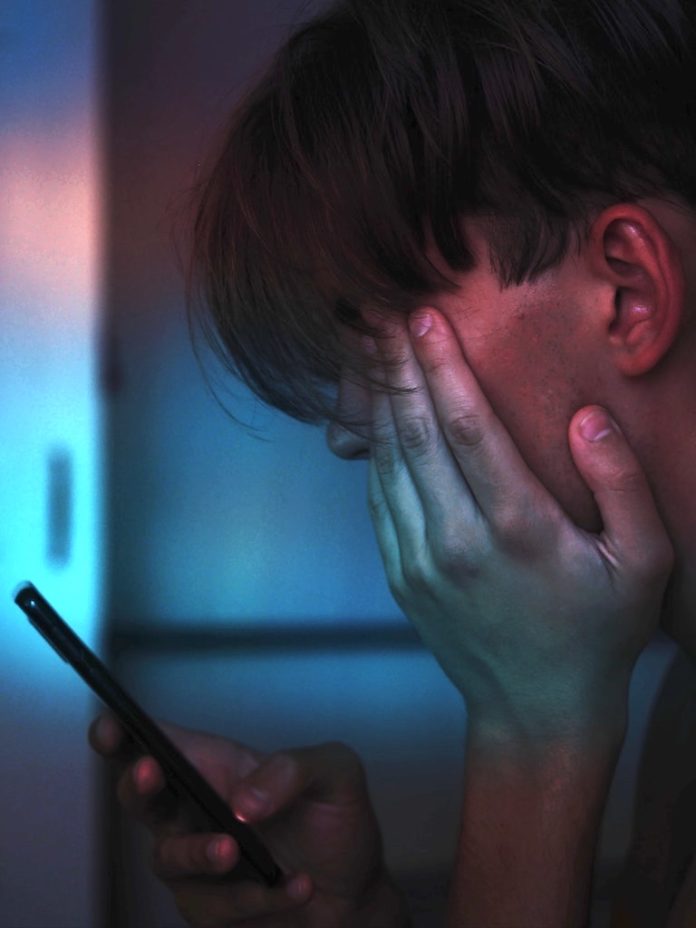It was ‘Mundane March’, 2020, and Sydney was in the throes of its first lockdown.
The rest of Sydney contemplated lunch as I woke up to hit snooze once, twice, three times. It was at the fifth alarm blare of Kanye West’s “Gold Digger” that I begrudgingly decided to attend university. I rolled over to grope blindly beside the bed for my laptop, contactless eyes squinting against the darkness, and tucked the laptop into bed with me. A 2020 edition teddy bear. I was in class, and despite my professor’s best efforts to engage a Black Mirror-esque cluster of silent grey screens, I was bored.
Scrolling through my phone, the preened and perfect world of Instagram gave me lockdown FOMO. YouTube videos were getting too long, too dragged out, took too much commitment. I needed a quick fix. A serotonin hit to combat the lockdown blues. And thus, I downloaded Generation Z’s christened “coping mechanism” – the hopelessly addictive #relatable, #viral, #hilarious and – quite frankly – #emotionallyexhausting and #endless vortex that is Tiktok.
Tiktok has undeniably transformed the social media landscape of 2020, well on its way to hold status alongside the giant mainstream platforms of YouTube, Instagram, and Facebook. The global impact of COVID-19 on people’s daily lives has seen consumers flock to their devices in incomprehensible numbers and Tiktok explode in popularity.
Datareportal’s October rundown on digital statistics presents the growth rate of social media as having doubled since January 2020. GlobalWebIndex offers the terrifying statistic that the average internet user spends approximately seven hours online each day, with almost four of those hours dedicated to social media. And according to Oberlo – 90 per cent of Tiktok’s users access the app every day and are active on Tiktok for approximately 60 minutes.
Terrifying, yet at the same time – can you blame us? As 2020 has rendered the world increasingly digitalised and physically isolated, the innate human need for connection – to feel included in something, validated, seen – is inevitable. And Tiktok presents something unique to its competitors. Tiktok offers delicious, bite-sized videos for quick, easy, painless consumption. And more importantly – it’s often raw. Diverse. Creative. Messy! And, trigger word – #relatable. We feel a little less alone.
Banished are the pressures of Instagram’s preened and posed slices of “perfection”. YouTube’s long-drawn, lagging videos are slowly going limp and stale. It’s unsurprising that 2020 has seen Tiktok surpass 2 billion downloads.
But where’s the limit, the craving that Tiktok’s sugary hits can’t quite fix, the point at which #relatable no longer softens the fact that we are facing 10 years of change in one? Is Tiktok really helping us cope, or simply enabling us to live through the 15-second highs and lows of strangers’ lives in place of facing our own?
Six months post ‘Mundane March’ and I was halfway through ‘Same-same September’. I opened Tiktok to see a man, maybe in his early twenties, in his bathroom. He stood at his sink, toothbrush in one hand, phone in the other. The caption read: “When you realise you can’t be left to your own thoughts even for the two minutes it takes to brush your teeth”. The video had 2.3million likes and hundreds, thousands, of comments that screamed “I feel so seen!!”; “never seen anything so relatable”; “wow this just attacked me”. And I stood there, reading those comments, and looked up at myself in the bathroom mirror. Toothbrush in one hand. Phone in the other.

Enter phenomenology, the antithesis to your Tiktok addiction, the cure to your Tiktok fatigue. You’ve tried the journalling, the green smoothies of kale and spinach and slugs and frogs, the colouring in, the puzzles, the podcasts, the sourdough baking – but have you tried applying an obscure and abstract school of thought to your everyday life?
I cannot possibly blame you if the answer is no – but here’s why you should. As I stood that night and faced myself in that mirror, toothbrush in one hand, phone in the other, Tiktok addiction hot and heavy – it dawned on me that even with all of the chaos and disruption and heartache that 2020 had so far served, it was silence that I was afraid of. Of simply being alone with myself, my thoughts, aware of the space that I occupied in the world. And approximately 2.3 million other Tiktok users felt the same.
Phenomenology, or more specifically, the practice of phenomenological writing, is the mindfulness tool both you and I didn’t realise we have. First exposed to it in my Theatre and Performance course, I would’ve laughed if you told me that ‘phenomenological writing’ would become as regular as my skincare routine. But it appealed to me for one fundamental reason that mainstream mindfulness practices seem to lack – phenomenology expects nothing of you. It makes no false promises, it has no expectation of profound end results. No likes, no follows, no transformation pics, no discount-coded equipment required.
Founded by Edmund Husserl in the early 20th Century, phenomenology is the study of the “experience of self”. Crucially, it is the study of self without the noise – without the emotions, theories, conceptualising, overthinking. Phenomenological writing is simply the description of conscious experience used to reveal unconscious meaning. Husserl illustrates this writing: “I am aware of the world…I discover it immediately, intuitively. I experience it. Through sight, touch, hearing etc.” And it is, in essence, as simple as that. To write phenomenologically, you must think of an experience. A single moment, perhaps, that you would like to isolate and reflect upon. And in simple terms, with no regard to your own anxieties or bustling thoughts or emotions – you describe how you felt spatially, sensorially, in that moment. What could you hear, see, touch, taste?

A morning bus ride, for example. Throughout high school, I took the same bus route every morning for six years. And yet most mornings, I would arrive at school barely knowing how I got there. To reflect on this experience through phenomenological writing, I would analyse the experience for how I lived it, rather than its conceptual meaning, therefore renewing contact with the past experience. I would describe the heaviness of my shoes on my feet as my legs swung a little, not quite reaching the ground. The weight of my backpack on my lap, pressing into my thighs. The shrill whistle of wind against the window. The faint murmur of of a stranger’s music, leaking through headphones; the low growl of the bus, slightly vibrating my seat. A single, short moment freed from forced meanings, anxieties, emotions, imposed concepts. Reinvigorated through phenomenological writing.
The exact antithesis to the 15-second endorphin hit of Tiktok, phenomenological writing promotes a deeper appreciation for life – not in the form of highlight reels, glossy squares, or Tiktok’s filtered moments of happiness or sadness or hilarity – but for the mundane, the ordinary. For the moments that tend to go unnoticed.
Ridiculously simple, inexcusably doable. Phenomenology is now #Trending. Will you accept this challenge?


